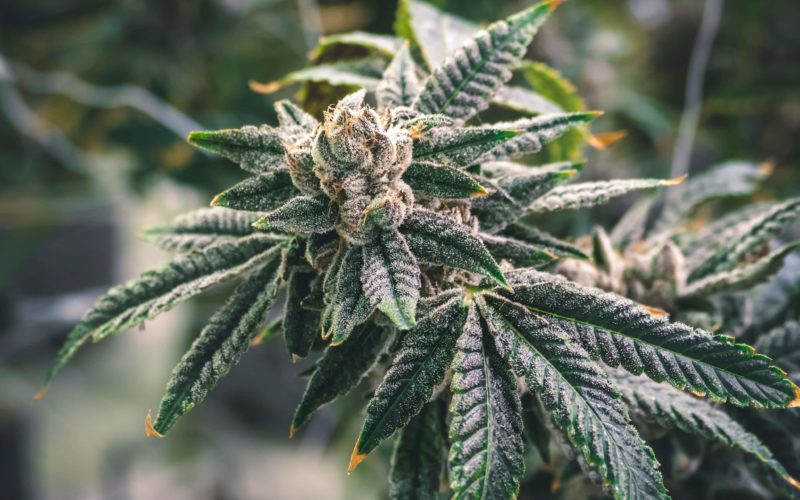Government
Washington State Settles With Unicorn Brands Following Synthetic THC Probe

The Liquor and Cannabis Board in the state of Washington said Wednesday that it has reached a settlement with Unicorn Brands LLC over a “a year-long investigation and multiple Administrative Violation Notices (AVNs) for creating synthetically-derived THC from hemp and distributing it into the state-regulated cannabis market.”
The board said that Unicorn Brands “cooperated with the investigation” and ceased the conversion process that was under question. Last summer, the Liquor and Cannabis Board issued a policy statement that “made clear that synthetically-derived THC from hemp was prohibited under current rules and law.”
“This was an important case about the integrity of the legal cannabis system voters approved ten years ago and which today flourishes in Washington with a carefully controlled system of production, processing and selling of cannabis to adults,” Liquor and Cannabis Board chair David Postman said in an email to marijuana license holders in the state, reminding the businesses “of the prohibition on the sort of laboratory conversions involved in the Unicorn case.”
In October of last year, the board’s Education and Enforcement Division issued an Administrative Violation Notices to Unicorn Brands for four violations in its synthesis process: “1) Misuse of License, 2) Criminal Conduct, 3) Noncompliant Extraction, and 4) Traceability Failure.”
Under the terms of the “comprehensive settlement” between the two sides, the board said that Unicorn Brands “will not resume converting hemp into THC and brings an end to a lengthy and complex investigation.”
The board provided more details on the back-and-forth that preceded this week’s settlement.
“After extensive negotiations, the agency and Unicorn reached an agreement to settle these cases. As part of this settlement, the Enforcement and Education Division has agreed to fully withdraw the alleged criminal conduct charge,” the board said in a statement. “In exchange, Unicorn stipulates and fully admits to the remaining three violations: Misuse of License, Noncompliant Extraction, and Traceability Failure. Further, Unicorn has agreed to pay the standard monetary penalties for the three stipulated violations, accept forfeiture of the seized products, and waive further administrative review. Finally, Unicorn has agreed to the condition that “it shall not use its license to produce or manufacture Delta‑8 THC, Delta-9 THC, or any similar synthetically-produced THC from any hemp-based sources in the State of Washington unless explicitly authorized by a subsequent change in state law that allows the licensee to do so.”
The case highlights concerns surrounding the burgeoning Delta-8 market, with state regulators throughout the country struggling to stay on top of new (and, in some cases, illicit) products.
In its press release on Wednesday, the Liquor and Cannabis Board called on lawmakers in Washington to take steps toward providing greater regulation on that front.
“The next important step in protecting the public health is to eliminate the burgeoning market for Delta 8 products and other synthetically-derived products outside the regulated market. These gummies and other edibles are being illegally sold in convenience stores and online in Washington and across the country. We hope the 2023 legislative session will see action to assist in eliminating these illegal sales,” the board said.
Regulation of Delta-8 is far from the only pressing matter facing Washington’s cannabis industry. The state experienced a surge in armed robberies of cannabis dispensaries earlier this year, a problem attributed to the large sums of cash on hand at such retailers.
A spokesperson for the Liquor and Cannabis Board said in February that the agency recommended dispensary owners “hire armed security guards, make frequent cash deposits so there isn’t much cash available in shops, post signs in businesses explaining that staff don’t have access to much cash, clearly communicate safety guidelines with staff so they know what to do in the event of a robbery.”
Business
New Mexico cannabis operator fined, loses license for alleged BioTrack fraud

New Mexico regulators fined a cannabis operator nearly $300,000 and revoked its license after the company allegedly created fake reports in the state’s traceability software.
The New Mexico Cannabis Control Division (CCD) accused marijuana manufacturer and retailer Golden Roots of 11 violations, according to Albuquerque Business First.
Golden Roots operates the The Cannabis Revolution Dispensary.
The majority of the violations are related to the Albuquerque company’s improper use of BioTrack, which has been New Mexico’s track-and-trace vendor since 2015.
The CCD alleges Golden Roots reported marijuana production only two months after it had received its vertically integrated license, according to Albuquerque Business First.
Because cannabis takes longer than two months to be cultivated, the CCD was suspicious of the report.
After inspecting the company’s premises, the CCD alleged Golden Roots reported cultivation, transportation and sales in BioTrack but wasn’t able to provide officers who inspected the site evidence that the operator was cultivating cannabis.
In April, the CCD revoked Golden Roots’ license and issued a $10,000 fine, according to the news outlet.
The company requested a hearing, which the regulator scheduled for Sept. 1.
At the hearing, the CCD testified that the company’s dried-cannabis weights in BioTrack were suspicious because they didn’t seem to accurately reflect how much weight marijuana loses as it dries.
Company employees also poorly accounted for why they were making adjustments in the system of up to 24 pounds of cannabis, making comments such as “bad” or “mistake” in the software, Albuquerque Business First reported.
Golden Roots was fined $298,972.05 – the amount regulators allege the company made selling products that weren’t properly accounted for in BioTrack.
The CCD has been cracking down on cannabis operators accused of selling products procured from out-of-state or not grown legally:
- Regulators alleged in August that Albuquerque dispensary Sawmill Sweet Leaf sold out-of-state products and didn’t have a license for extraction.
- Paradise Exotics Distro lost its license in July after regulators alleged the company sold products made in California.
Golden Roots was the first alleged rulebreaker in New Mexico to be asked to pay a large fine.
Source: https://mjbizdaily.com/new-mexico-cannabis-operator-fined-loses-license-for-alleged-biotrack-fraud/
Business
Marijuana companies suing US attorney general in federal prohibition challenge

Four marijuana companies, including a multistate operator, have filed a lawsuit against U.S. Attorney General Merrick Garland in which they allege the federal MJ prohibition under the Controlled Substances Act is no longer constitutional.
According to the complaint, filed Thursday in U.S. District Court in Massachusetts, retailer Canna Provisions, Treevit delivery service CEO Gyasi Sellers, cultivator Wiseacre Farm and MSO Verano Holdings Corp. are all harmed by “the federal government’s unconstitutional ban on cultivating, manufacturing, distributing, or possessing intrastate marijuana.”
Verano is headquartered in Chicago but has operations in Massachusetts; the other three operators are based in Massachusetts.
The lawsuit seeks a ruling that the “Controlled Substances Act is unconstitutional as applied to the intrastate cultivation, manufacture, possession, and distribution of marijuana pursuant to state law.”
The companies want the case to go before the U.S. Supreme Court.
They hired prominent law firm Boies Schiller Flexner to represent them.
The New York-based firm’s principal is David Boies, whose former clients include Microsoft, former presidential candidate Al Gore and Elizabeth Holmes’ disgraced startup Theranos.
Similar challenges to the federal Controlled Substances Act (CSA) have failed.
One such challenge led to a landmark Supreme Court decision in 2005.
In Gonzalez vs. Raich, the highest court in the United States ruled in a 6-3 decision that the commerce clause of the U.S. Constitution gave Congress the power to outlaw marijuana federally, even though state laws allow the cultivation and sale of cannabis.
In the 18 years since that ruling, 23 states and the District of Columbia have legalized adult-use marijuana and the federal government has allowed a multibillion-dollar cannabis industry to thrive.
Since both Congress and the U.S. Department of Justice, currently headed by Garland, have declined to intervene in state-licensed marijuana markets, the key facts that led to the Supreme Court’s 2005 ruling “no longer apply,” Boies said in a statement Thursday.
“The Supreme Court has since made clear that the federal government lacks the authority to regulate purely intrastate commerce,” Boies said.
“Moreover, the facts on which those precedents are based are no longer true.”
Verano President Darren Weiss said in a statement the company is “prepared to bring this case all the way to the Supreme Court in order to align federal law with how Congress has acted for years.”
While the Biden administration’s push to reschedule marijuana would help solve marijuana operators’ federal tax woes, neither rescheduling nor modest Congressional reforms such as the SAFER Banking Act “solve the fundamental issue,” Weiss added.
“The application of the CSA to lawful state-run cannabis business is an unconstitutional overreach on state sovereignty that has led to decades of harm, failed businesses, lost jobs, and unsafe working conditions.”
Business
Alabama to make another attempt Dec. 1 to award medical cannabis licenses

Alabama regulators are targeting Dec. 1 to award the first batch of medical cannabis business licenses after the agency’s first two attempts were scrapped because of scoring errors and litigation.
The first licenses will be awarded to individual cultivators, delivery providers, processors, dispensaries and state testing labs, according to the Alabama Medical Cannabis Commission (AMCC).
Then, on Dec. 12, the AMCC will award licenses for vertically integrated operations, a designation set primarily for multistate operators.
Licenses are expected to be handed out 28 days after they have been awarded, so MMJ production could begin in early January, according to the Alabama Daily News.
That means MMJ products could be available for patients around early March, an AMCC spokesperson told the media outlet.
Regulators initially awarded 21 business licenses in June, only to void them after applicants alleged inconsistencies with how the applications were scored.
Then, in August, the state awarded 24 different licenses – 19 went to June recipients – only to reverse themselves again and scratch those licenses after spurned applicants filed lawsuits.
A state judge dismissed a lawsuit filed by Chicago-based MSO Verano Holdings Corp., but another lawsuit is pending.
Source: https://mjbizdaily.com/alabama-plans-to-award-medical-cannabis-licenses-dec-1/
-

 Business2 years ago
Business2 years agoPot Odor Does Not Justify Probable Cause for Vehicle Searches, Minnesota Court Affirms
-

 Business2 years ago
Business2 years agoNew Mexico cannabis operator fined, loses license for alleged BioTrack fraud
-

 Business2 years ago
Business2 years agoAlabama to make another attempt Dec. 1 to award medical cannabis licenses
-

 Business2 years ago
Business2 years agoWashington State Pays Out $9.4 Million in Refunds Relating to Drug Convictions
-

 Business2 years ago
Business2 years agoMarijuana companies suing US attorney general in federal prohibition challenge
-

 Business2 years ago
Business2 years agoLegal Marijuana Handed A Nothing Burger From NY State
-

 Business2 years ago
Business2 years agoCan Cannabis Help Seasonal Depression
-

 Blogs2 years ago
Blogs2 years agoCannabis Art Is Flourishing On Etsy











